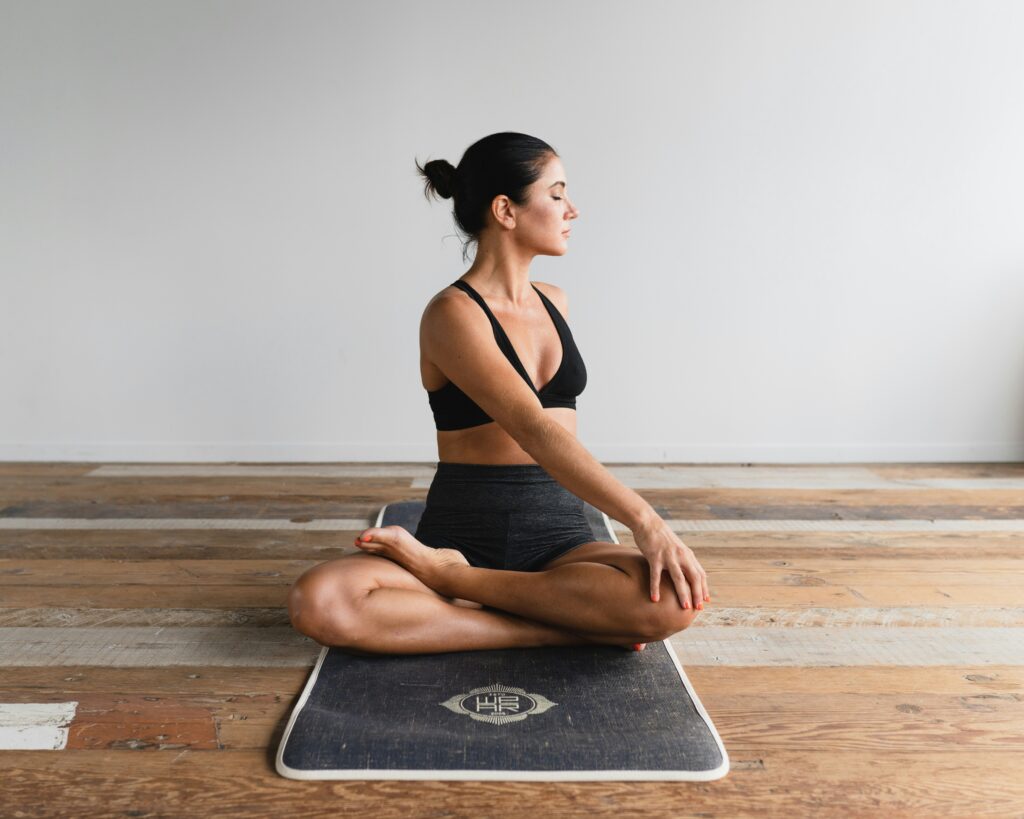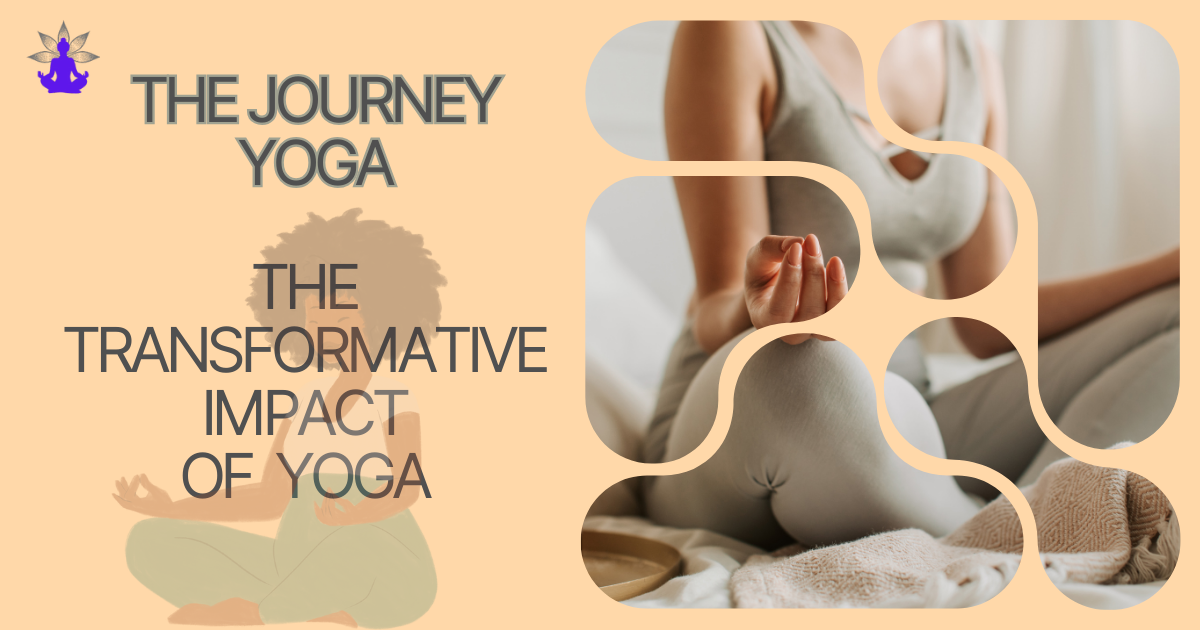Hatha Yoga, often referred to simply as “Yoga,” is a popular practice that combines physical postures (asanas), breathing techniques (pranayama), and meditation to promote overall well-being. Originating in ancient India, Hatha Yoga has evolved over centuries into various styles and forms, but its core principles remain focused on achieving harmony between the body and mind. In this comprehensive guide, we’ll delve into the fundamentals of Hatha Yoga, its benefits, how to get started, common poses, advanced techniques, safety measures, and its spiritual aspects.
Table of Contents
Introduction to Hatha Yoga
What is Hatha Yoga?
Hatha Yoga is a discipline that aims to balance the body and mind through physical postures (asanas) and breath control (pranayama). The term “Hatha” is derived from two Sanskrit words: “ha” meaning sun and “tha” meaning moon, symbolizing the union of opposites. Hatha Yoga seeks to create a harmonious equilibrium between the dualities within oneself.
Origin of Hatha Yoga
Hatha Yoga traces its roots back to ancient India, where it was developed as a way to prepare the body for prolonged meditation. The traditional text Hatha Yoga Pradipika, written by Yogi Swatmarama in the 15th century, is one of the seminal works that elucidates the principles and practices of Hatha Yoga.
Understanding the Principles of Hatha Yoga
Physical Asanas
Physical asanas form the cornerstone of Hatha Yoga practice. These postures are designed to stretch, strengthen, and align the body, promoting flexibility, balance, and vitality. From gentle stretches to challenging poses, each asana offers unique benefits for the body and mind.
Breathing Techniques (Pranayama)
Pranayama, or breath control, is another integral aspect of Hatha Yoga. Through specific breathing techniques, practitioners learn to regulate their breath, increase oxygen flow, and cultivate inner awareness. Pranayama exercises help calm the mind, reduce stress, and enhance overall vitality.

Photo by unsplash
Benefits of Practicing Hatha Yoga
Physical Health Benefits
Regular practice of Hatha Yoga can lead to a myriad of physical health benefits, including improved flexibility, strength, and posture. It can also alleviate chronic pain conditions, enhance cardiovascular health, and boost immune function. Additionally, Hatha Yoga promotes detoxification by stimulating the lymphatic system and improving digestion.
Mental and Emotional Well-being
Beyond its physical benefits, Hatha Yoga is renowned for its positive effects on mental and emotional well-being. By fostering mindfulness and inner calm, it reduces anxiety, depression, and stress. Hatha Yoga cultivates a sense of inner peace and contentment, enabling practitioners to navigate life’s challenges with greater resilience and equanimity.
How to Start Practicing Hatha Yoga
Finding a Suitable Class or Instructor
Finding a suitable Hatha Yoga class or instructor is essential for beginners. Look for certified instructors who prioritize safety and alignment in their teachings. Consider attending a few different classes to find the style and teacher that resonate with you.
Essential Equipment and Clothing
To start practicing Hatha Yoga, you’ll need minimal equipment: a yoga mat for cushioning and stability, comfortable clothing that allows for unrestricted movement, and perhaps a blanket or block for support during certain poses.
Common Hatha Yoga Poses for Beginners
Mountain Pose (Tadasana)
Mountain Pose (Tadasana) is a foundational pose that teaches alignment and grounding. Stand tall with your feet hip-width apart, arms relaxed by your sides, and spine lengthened. Engage your thighs, lift your chest, and breathe deeply as you root down through your feet.
Downward Facing Dog (Adho Mukha Svanasana)
Downward Facing Dog (Adho Mukha Svanasana) is a rejuvenating stretch that strengthens the entire body. Start on your hands and knees, tuck your toes, and lift your hips toward the ceiling. Press your hands firmly into the mat, elongate your spine, and draw your heels toward the ground.
Advanced Hatha Yoga Poses and Techniques
Headstand (Sirsasana)
Headstand (Sirsasana) is often called the “king of all asanas” for its myriad benefits. This inversion pose improves circulation, strengthens the core, and cultivates mental clarity. Practice under the guidance of an experienced instructor to ensure safety and proper alignment.
Breath Retention (Kumbhaka)
Breath retention (Kumbhaka) is an advanced pranayama technique that involves holding the breath for extended periods. It enhances lung capacity, improves concentration, and induces a meditative state. Begin with short holds and gradually increase duration as you build strength and awareness.

Photo by unsplash
Incorporating Meditation into Hatha Yoga Practice
Benefits of Meditation in Hatha Yoga
Meditation is an integral component of Hatha Yoga, offering profound benefits for mental, emotional, and spiritual well-being. Regular meditation practice cultivates inner peace, clarity of mind, and heightened self-awareness. It helps practitioners develop greater resilience and equanimity in the face of life’s challenges.
Simple Meditation Techniques
To incorporate meditation into your Hatha Yoga practice, start with simple techniques such as mindfulness meditation, breath awareness, or mantra repetition. Find a comfortable seated position, close your eyes, and focus your attention inward. Allow thoughts to arise and pass without judgment, returning your awareness to the present moment.
Precautions and Safety Measures in Hatha Yoga Practice
Listening to Your Body
Listening to your body is paramount in Hatha Yoga practice. Honor your limits and avoid pushing yourself beyond your comfort zone. If a pose feels painful or uncomfortable, back off and modify as needed. Respect your body’s signals and practice with awareness and compassion.
Avoiding Overexertion
While Hatha Yoga offers numerous benefits, it’s important to avoid overexertion and excessive strain. Pace yourself during practice, taking breaks as needed and staying hydrated. Remember that progress in yoga is gradual, and patience is key to long-term success.
The Spiritual Aspect of Hatha Yoga
Connecting Body, Mind, and Spirit
At its core, Hatha Yoga is a holistic practice that seeks to integrate body, mind, and spirit. Through asanas, pranayama, and meditation, practitioners cultivate a deeper connection to themselves and the world around them. Hatha Yoga fosters a sense of unity and interconnectedness, transcending physical boundaries to access higher states of consciousness.
Exploring Inner Awareness
Beyond its physical and mental benefits, Hatha Yoga offers a pathway to self-discovery and inner awareness. By tuning into the subtle sensations of the body and breath, practitioners gain insight into their inner landscape. This journey of self-exploration fosters personal growth, wisdom, and spiritual awakening.
Conclusion
Hatha Yoga is more than just a physical exercise; it’s a transformative practice that nourishes the body, calms the mind, and uplifts the spirit. Whether you’re a beginner or an experienced practitioner, incorporating Hatha Yoga into your daily routine can lead to profound benefits for your overall well-being. Embrace the journey with an open heart and a willingness to explore the depths of your being through the ancient wisdom of Hatha Yoga.
Frequently Asked Questions (FAQs)
What should I wear for Hatha Yoga practice?
Wear comfortable, breathable clothing that allows for ease of movement, such as yoga pants or leggings and a fitted top. Avoid loose or baggy clothing that may hinder your practice.
Can anyone practice Hatha Yoga?
Yes, Hatha Yoga is suitable for people of all ages, fitness levels, and body types. It can be adapted to accommodate individual needs and limitations, making it accessible to virtually everyone.
How often should I practice Hatha Yoga?
Ideally, aim to practice Hatha Yoga at least three to four times per week to experience noticeable benefits. Consistency is key, so find a schedule that works for you and commit to regular practice.
Is Hatha Yoga suitable for weight loss?
While Hatha Yoga primarily focuses on holistic well-being rather than weight loss, it can be a valuable component of a healthy lifestyle. Regular practice can improve metabolism, increase muscle tone, and promote mindful eating habits, which may support weight management goals.
Are there any age restrictions for practicing Hatha Yoga?
No, there are no age restrictions for practicing Hatha Yoga. It’s never too late to start reaping the benefits of this ancient practice. However, individuals with specific medical conditions or physical limitations should consult with a healthcare professional before beginning a yoga practice.
-
10 Tips to Grow Your Health with Morning Yoga
Morning yoga is a powerful way to enhance your physical and mental well-being. By integrating this practice into your daily routine, you can experience numerous health benefits that positively impact your overall quality of life. Here are ten tips to grow your health with morning yoga. 1. Start with a Gentle Warm-Up Summary: Warming up…
-
Buy Men’s Gardenia Typography Super Loose Fit T-shirt Online at Bewakoof Offers Fanbook Download App TriBe Membership Contact Us Track Order MEN TopwearT-ShirtsPrinted T-ShirtsOversized T-shirtsClassic Fit T-shirtsPlain T-ShirtsHalf Sleeve T-ShirtsFull Sleeve T-ShirtsPolo T-ShirtsVestsShirtsCo-ord SetsPlus Size TopwearCustomize T-shirtsT-shirt CombosSweatshirts & HoodiesJacketsSweatersAll Topwear BottomwearJoggersJeansBaggy JeansPajamasCargosCargo PantsTrousers & PantsCo-ord SetsShortsBoxersCombosPlus Size BottomwearAll Bottomwear WinterwearSweatshirts & HoodiesJacketsSweatersJoggersPlus Size FootwearSlidersClogsCasual…
-
Unveiling the Journey Yoga to Relief: The Transformative Impact of Yoga
Introduction: Understanding Chronic Pain Grasping Chronic Pain Within the sphere of holistic healthcare methodologies, yoga emerges as a guiding light for individuals grappling with persistent pain. Chronic pain, a widespread affliction affecting multitudes globally, encompasses a spectrum of ailments ranging from arthritis to fibromyalgia, each imposing its own distinctive hurdles on sufferers. Conventional treatments often…


